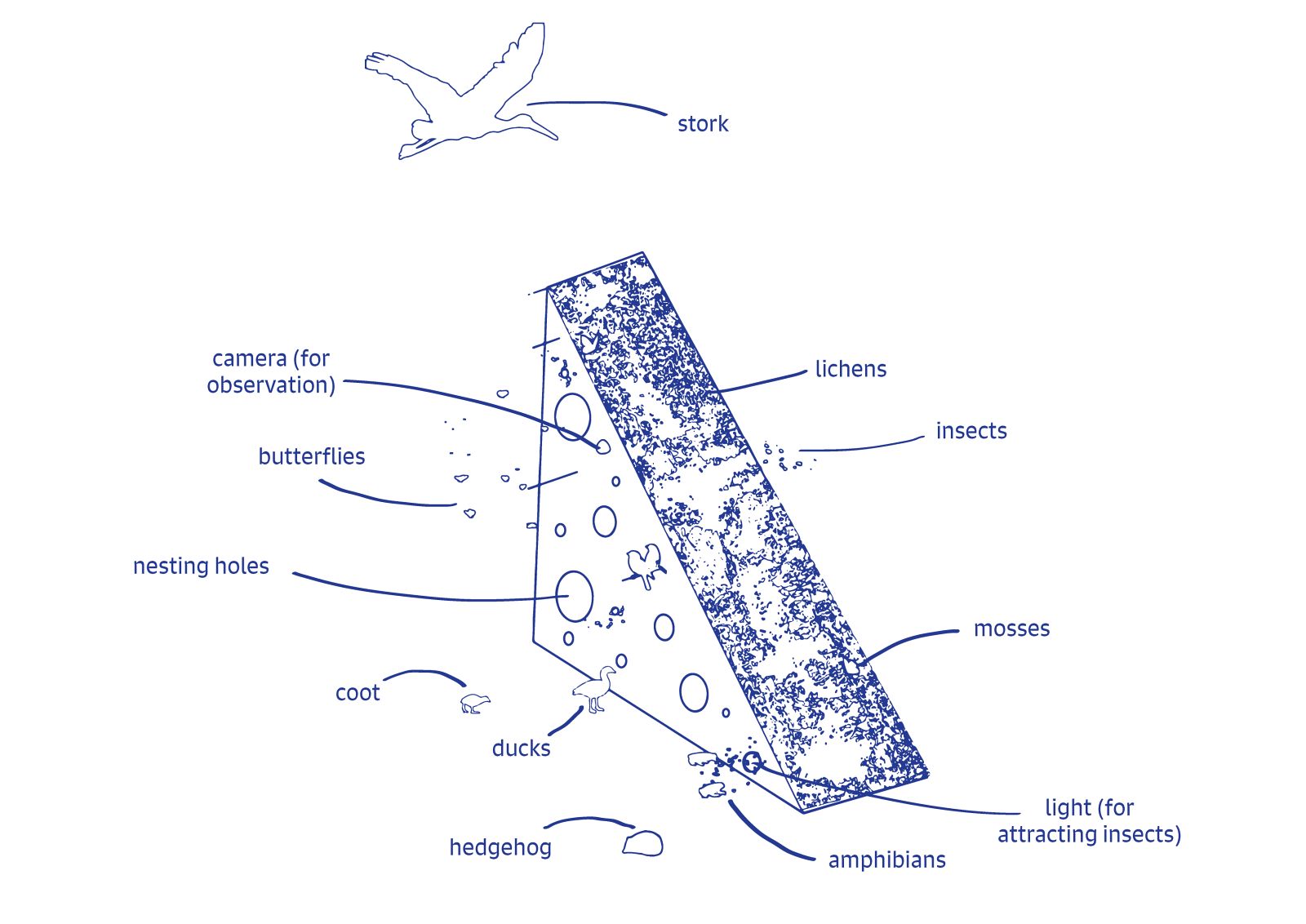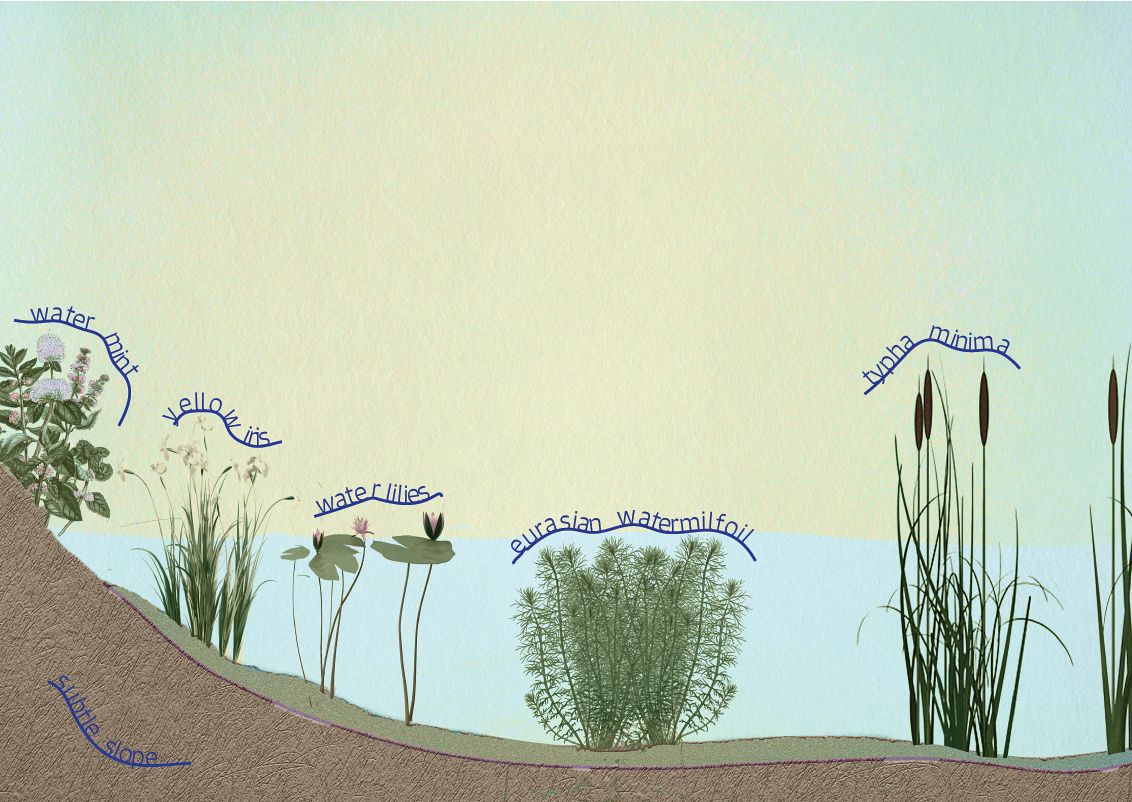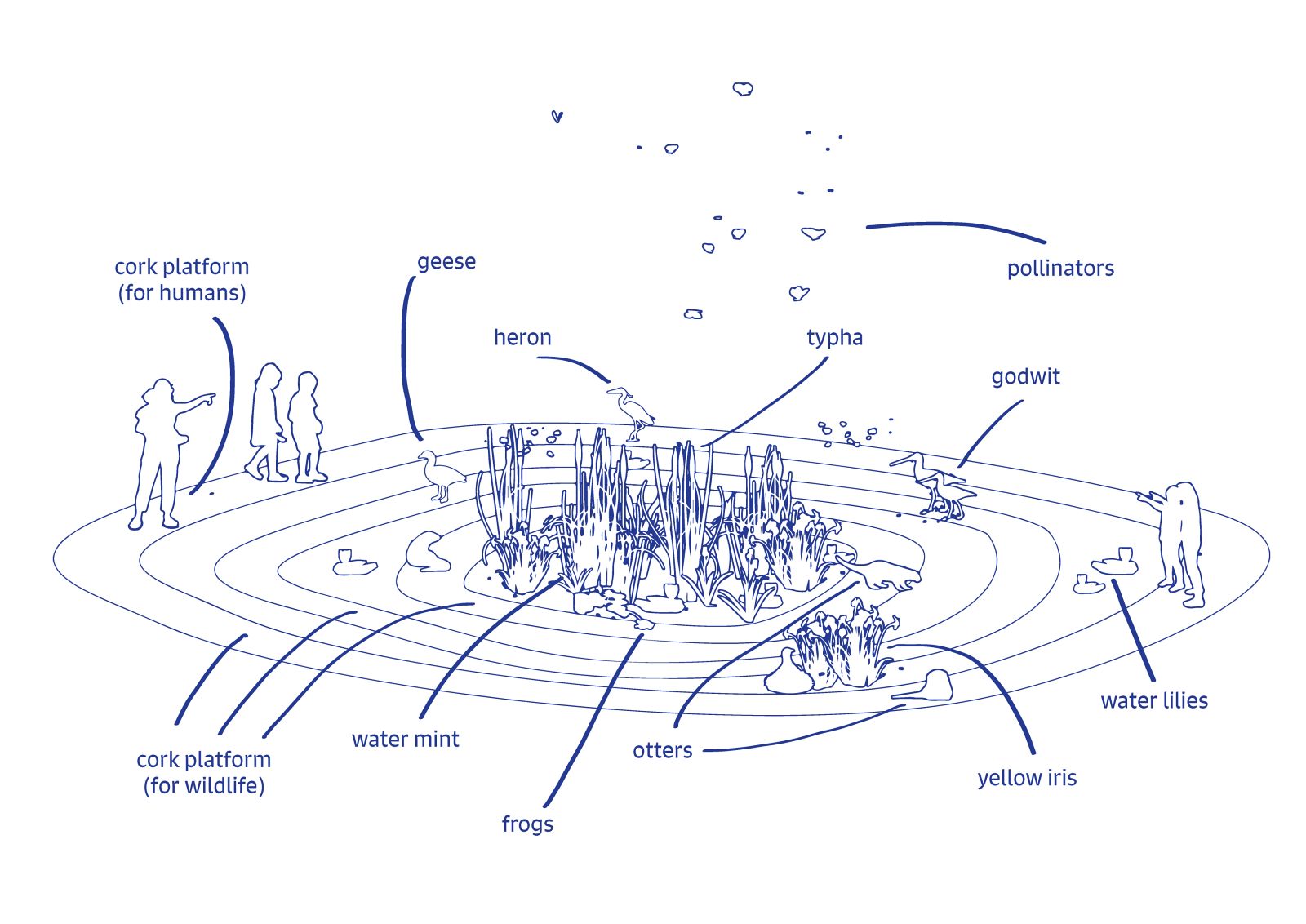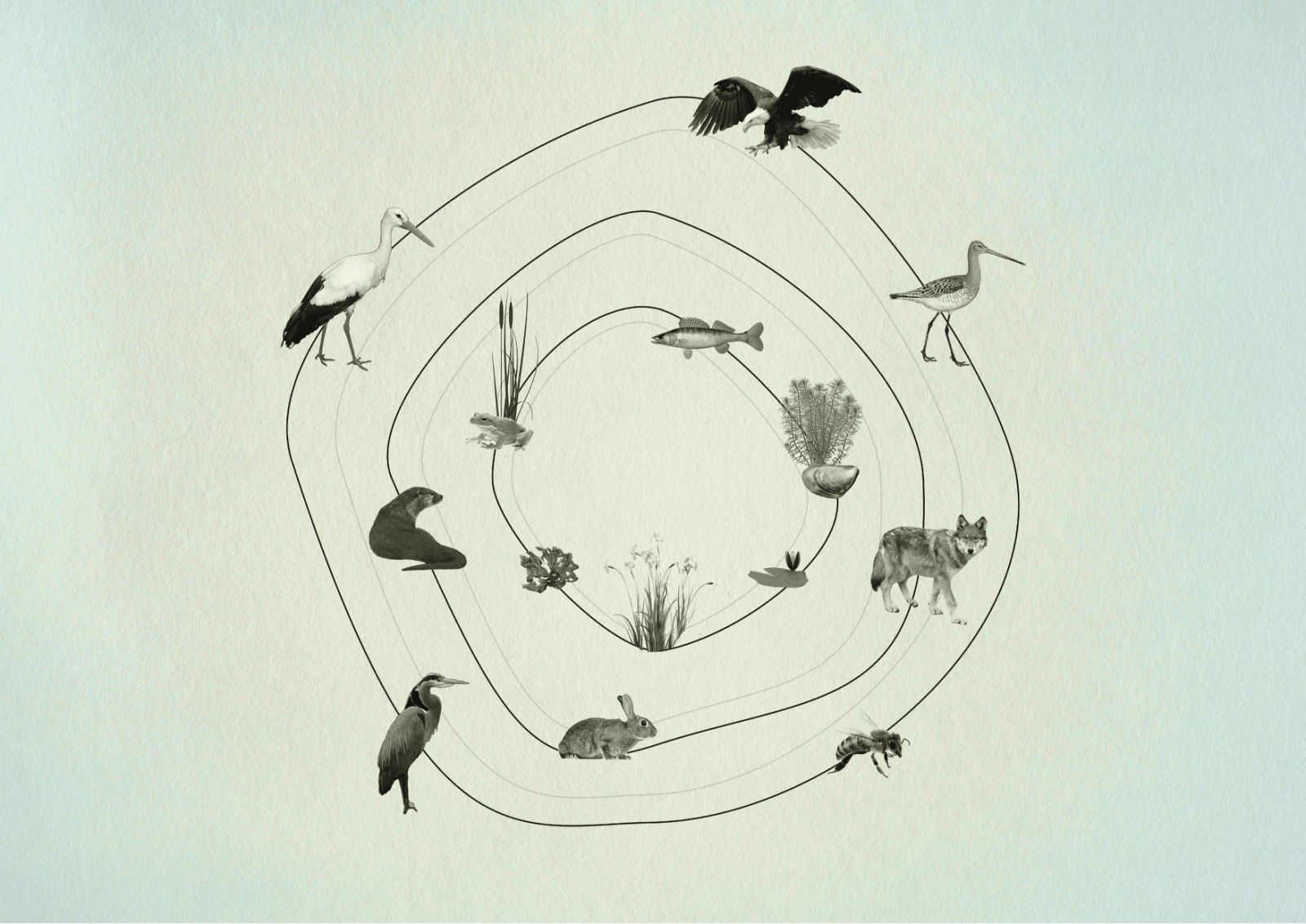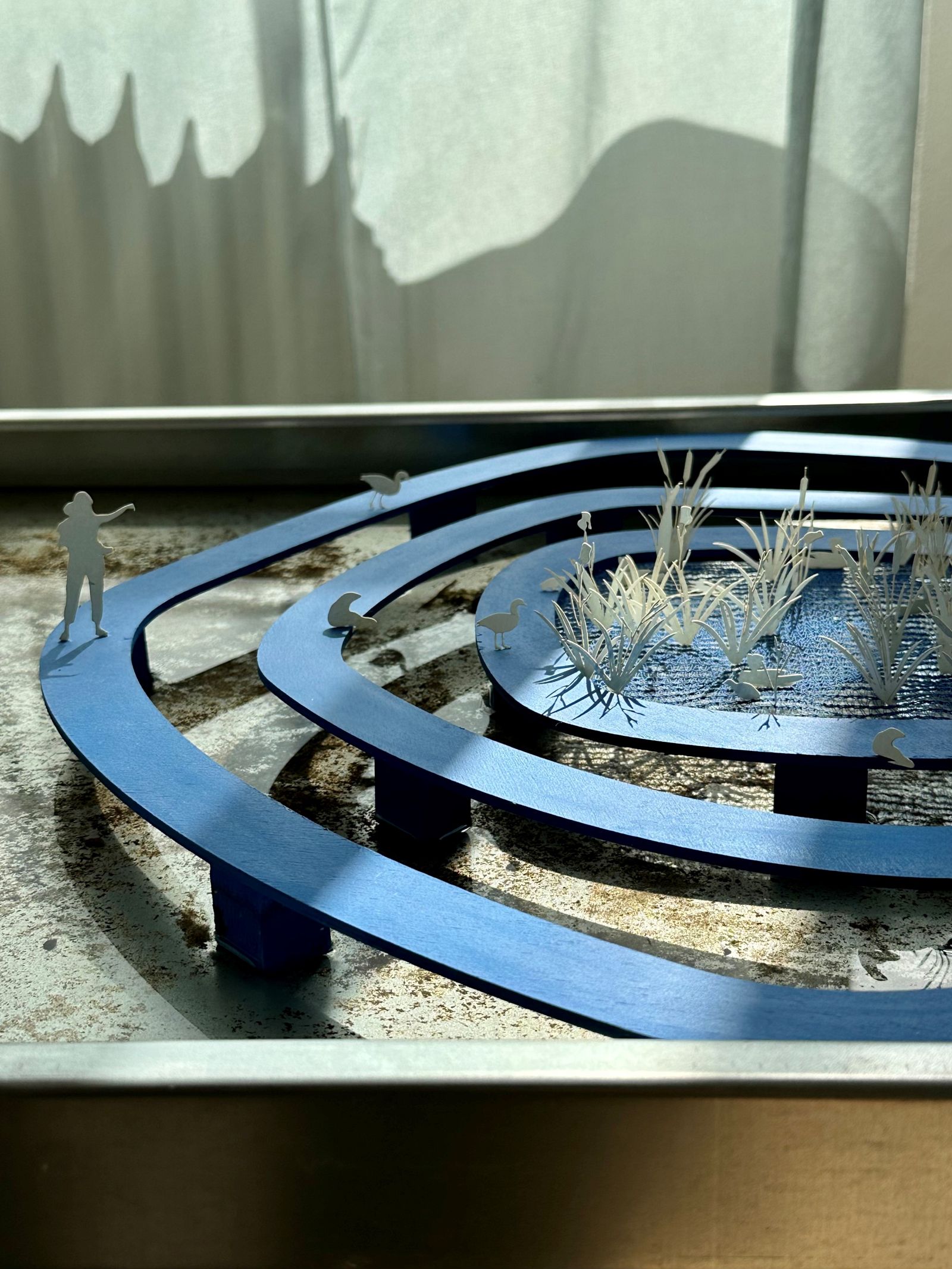
Wiktoria Markiewicz
Keywords: Wildlife, Zoo, Rewilding
Many enjoy zoos as a low form of entertainment: everything is provided on a golden platter. This type of performative practice remains at a very passive level, posing as educative yet often being only exploitative. Zoological gardens are not a sustainable future of preservation. I propose to move away from this format and look at education, active engagement, and consensual interaction design instead.
The human desire for perfection is one of the main reasons why our ecosystems are falling apart. Huge, overcalculated proposals often make good theories on paper and failures in real life. On the other hand, small-scale initiatives are often dismissed due to “a lack of influence”. Wildlife is unpredictable and so only projects that are perpetually (re)evaluated and (re)adapted can stand the pressure of time and humans.
The ideal scenario is not what my project explores, rather I am interested in what minor local change can achieve. The argument is not the lack of initiative but the absence of aesthetics, information, and engagement in the ones already existing.
I introduce human-made constructions to let time, flora and fauna decide whether the design is a successful one. What you encounter, depends on all the complex relationships in a biodiverse ecosystem. The amount of wildlife, the clarity of the water, and the interactions are a work in progress: we are (RE)introducing something that we have lost through overlooking and urbanization. This is an invitation to observe, respect, learn, and adapt. It is an emergence of wild potential. A place where we can explore our interspecies relationships, reciprocally.
